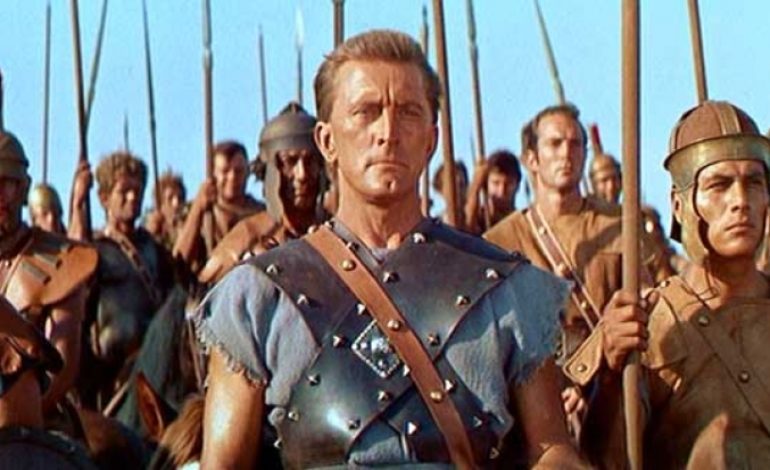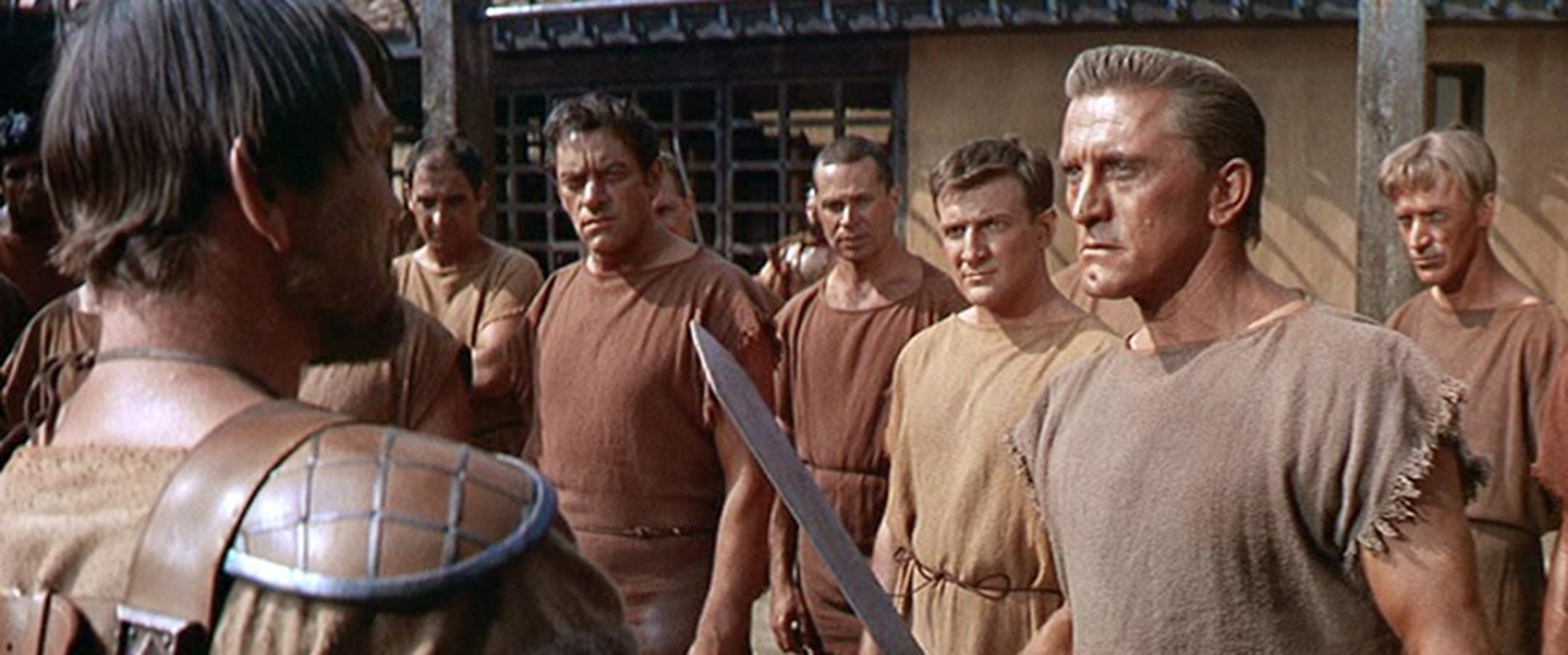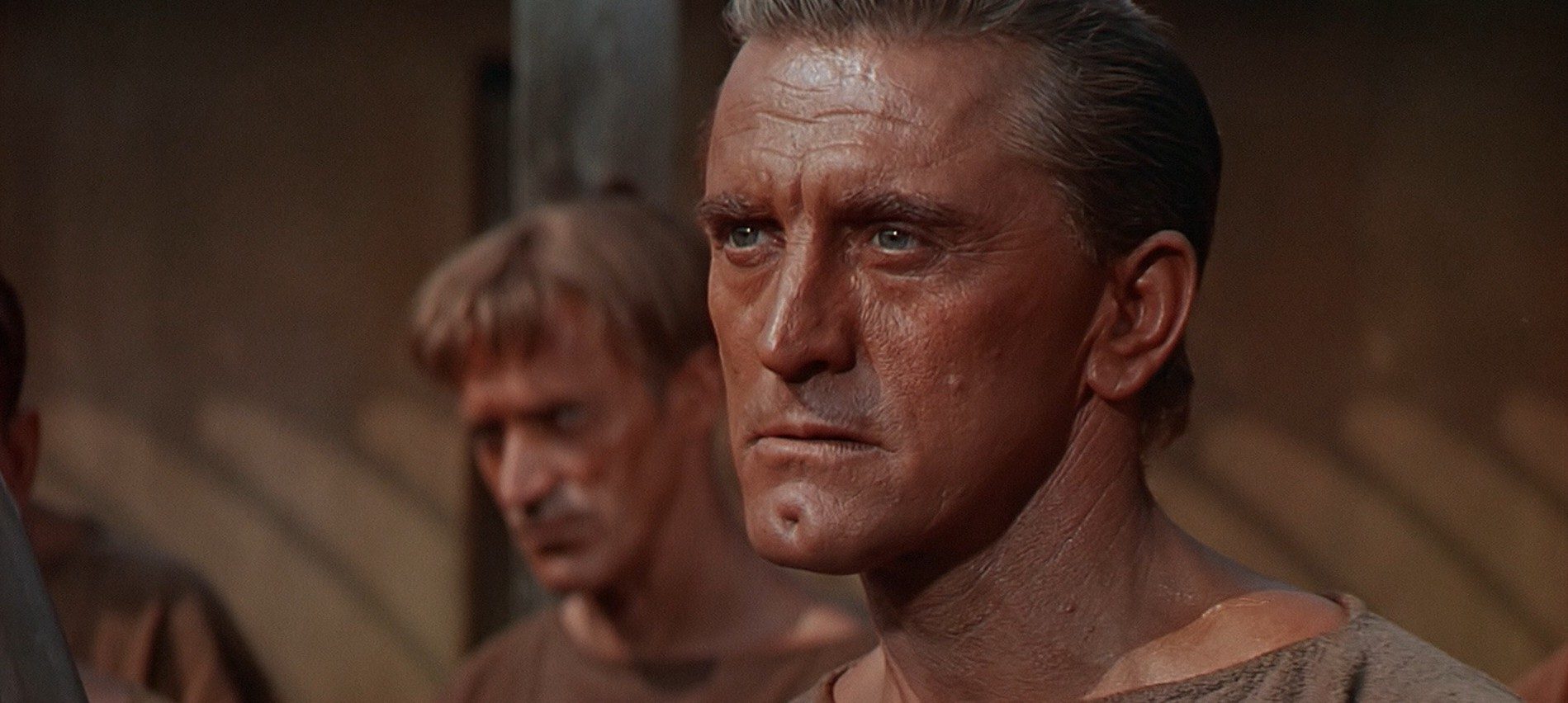

What can I say about the disowned stepchild of director Stanley Kubrick that hasn’t already been said? Despite being such a cultural phenomenon not just for its context and messages, but also the historical paradigms it set during the 60’s, Spartacus withstood great upheaval and turmoil to be brought to the big screen. From pre-production controversy to on-set tension, and post-release admiration to culture shifting cinema, Spartacus is a tale of freedom, love, honor and loyalty. It’s also a tale on the human condition, as is often the case with Kubrick’s work, yet some would be hesitant to group this entry into his filmography just as he would. Though a stark departure from his signature directing style, Spartacus still remains one of Stanley Kubrick’s great works and stands apart from most movie epics done of the time or before it.
Spartacus tells the story of the titular Thracian slave, who is trained as a gladiator and revolts to amass his own army against the great military might of Rome. His enthusiasm only leads to him getting captures and being crucified in front of his wife and newborn son. Played by the late Kirk Douglas, this film not only strives in its depiction of ideals and concepts but also in its’ performances by its great cast. The cinematography, shot by the masterful Kubrick, only accentuates the film’s grandeur and epic scope. Showcasing what a $12-milli dollar production in 1960 could produce with stellar talent, a visionary director and san all-star cast.


Historically not being Kubrick’s favorite of his works, Spartacus nevertheless steals the show with its groundbreaking adaptation of Howard Fast’s novel, morphing into newfound styles of genre moviemaking. The film not only displayed the true nature of McCarthyist-era paranoia, but also Kubrick’s adeptness at handling large motion pictures. In addition, audiences truly resonated with Spartacus’ parallels to the Civil Rights movement and its displays of freedom as a goal of the oppressed. Much credit is due to the visionary of Douglas, who not only produced the film and deliver an outstanding performance, but even out of spite for his rivals, managed to bring an end to the Hollywood blacklist by listing blacklisted screenwriter Dalton Trumbo on the film credits.
Spartacus’ cast is incredible. All the performances, from Jean Simmons as Varinia to Laurence Olivier as Crassus, this film is definitely a masterclass in movie acting. The romantic subplot between Spartacus and Varinia is very subtle with gentle undertones in the beginning. Varinia’s experience and wariness against Spartacus’ innocence and naïveté make for an undoubtable matchup that is only delivered with so many words and expressions. A mutual liking and respect is immediately understood between the two characters when they both concur their humanity after Spartacus’ mocking via his captors Not to say that this dynamic is perfect. As the film continues, you start to see forced chemistry between these actors, which is almost an insult to the dynamic intuitiveness displayed earlier.


Despite those issues, this is still one of Kirk Douglas’ standout roles. His honesty, undying loyalty, and love for not only Varnia but the slaves that he has gathered is present throughout this performance. Having wanted to rival that of Charlton Heston’s Ben-Hur, Kirk Douglas sought to establish an epic that would supersede his competitor’s for not casting him in the titular role. What manifested was an epic that shook that nation to its’ core and resonated with so many people upon its release.
During a time when the United States was in a deep state of paranoia and social tension, Spartacus attempted to tackle delicate issues during the McCarthyism era. It depicted parallels between the naming of individuals who would sympathize with certain labeled “Un-American” causes and that of the Civil Rights movement with its’ focus on freedom and moral humanity. Holding up a mirror to American society that showcases its turbulent past yet still poses engaging questions for its’ future.
Verdict: 4 out of 5 Stars
A very deep film that still holds up today, Spartacus is a phenomenal epic with fantastic acting and visuals with themes that still hold up today. An ode to the late Kirk Douglas who fought tirelessly to get this film, despite the brewing of tension surrounding its release and troubles on-set between him and Kubrick, this film continues to astound audiences. It’s still considered one of the great epics to come out of the Classic Hollywood Era of cinema for a reason.
